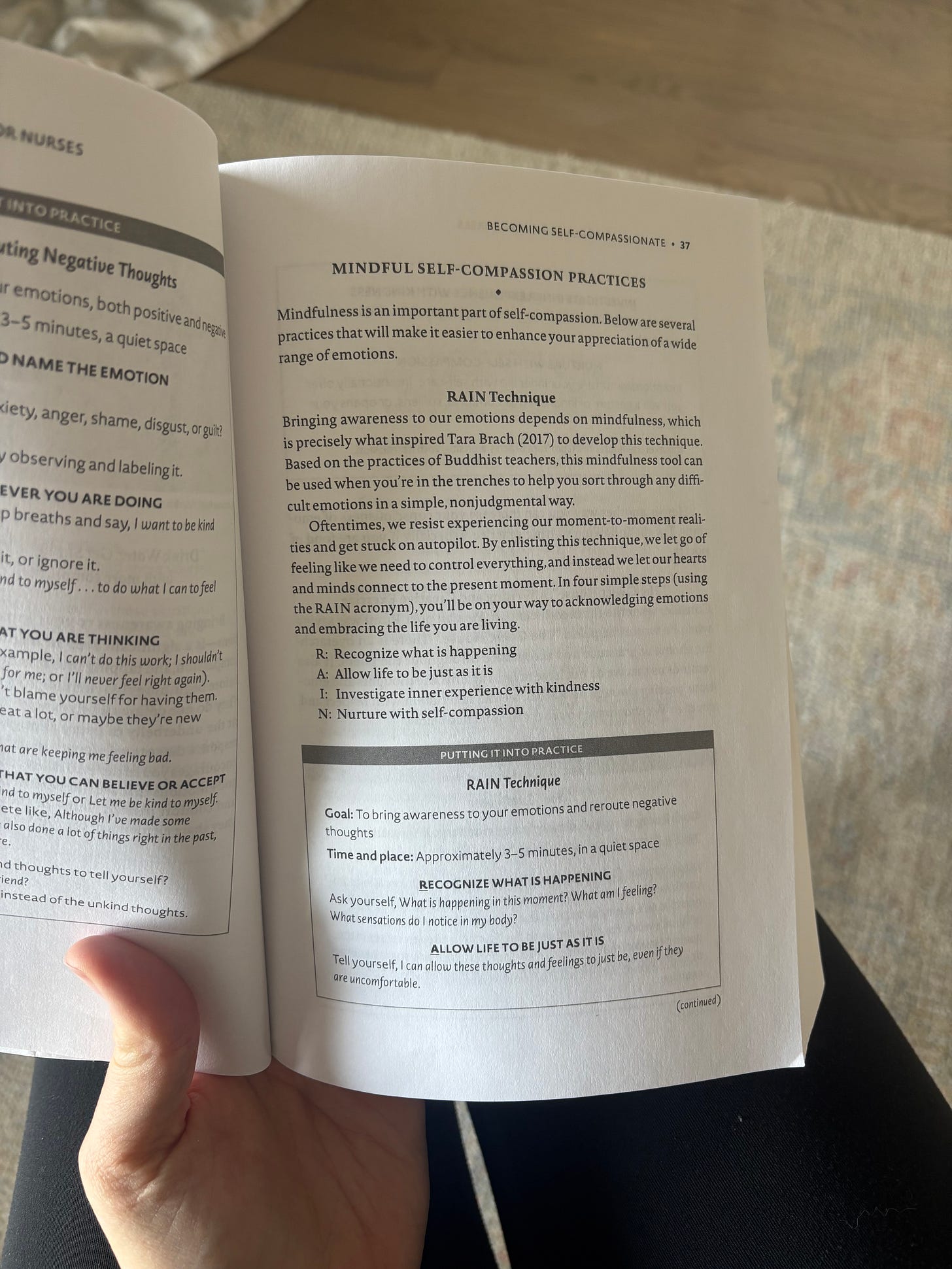Well Worth It #1: RAIN a self-compassion practice
Challenging days and seasons are inevitable. Being kind to ourselves is optional– but highly encouraged.
Welcome to the first edition of the Well Worth It segment, I’m sharing here on Worrying Well. I’ll be sharing tools and techniques in the wellness world that I find to be worth the time, energy, and resources to actually improve your well-being. Navigating the world right now can be tough and I hope that these Well Worth It posts will be a guide to get you through this season and the seasons to come.
“You’ve been criticizing yourself for years and it hasn’t worked. Try approving of yourself and see what happens.”
— Louise L. Hay
We cannot escape the challenges life throws at us, we can decide how to face them and how we treat ourselves in the process. Self-compassion is caring for ourselves the way we would care for a friend. Typically, it’s easier to hold space, be gracious, and tender with our loved ones than it is to share the same gentleness with ourselves. When we’re experiencing difficulty or just having a bad day, it’s common for our inner critic to appear, scolding us for the situation we find ourselves in or convincing us that our feelings aren’t valid.
In these moments, it’s normal to want to push through the struggles we are facing in hopes that if we white-knuckle the situation, it will be over soon. As we welcome in self-compassion and mindfulness, we choose to sit with the discomfort of challenging situations or uncomfortable emotions. We let them be, rather than forcing them to disappear or transform into a different feeling altogether.
RAIN is a technique that encourages this type of non-judgmental energy towards ourselves. It is a mindfulness and self-compassion strategy developed by the brilliant Dr. Tara Brach. It’s a practice designed to be used in moments when we need to usher in more kindness towards ourselves, especially when challenging emotions arise. RAIN is an easy-to-remember acronym that can be used whenever, and wherever you need to.
R- Recognize what is happening
A- Allow the experience to be there, just as it is
I- Investigate with interest and care
N- Nurture with self-compassion
It’s a practice that’s widely used by therapists, coaches, and healers to help themselves and their clients navigate challenges. It’s even included in my book, Courageous Well-Being for Nurses, in the very first chapter “Becoming Self-Compassionate”.
I’ll walk you through an example of how to apply RAIN to a challenging situation and break down each of the components.
Clara is a medical student in her first year of med school and spent the last two weeks studying for a biology exam. She went into it with some nerves but felt prepared after dozens of hours of studying. Once she got to the exam, she realized she didn’t study all of her biology notes from the semester and was not confident with many of her answers. She felt panicked but managed to finish in time and left the exam room feeling defeated and mad at herself for making such a big mistake.
First, recognize. Recognizing means consciously acknowledging, in any given moment, the thoughts, feelings, and behaviors that you’re experiencing.
“I spent hours preparing for this exam but ultimately didn’t study enough content and know how important this exam is to my semester grades. I’m worried and mad at myself for messing up”
Second, allow. Allowing means letting the thoughts, emotions, feelings, or sensations you have recognized simply be there. You do not need to try to fix or avoid anything.
“It’s ok to feel upset right now. This is important and matters.”
Third, investigate with interest and care. To investigate, call on your natural curiosity—the desire to know the truth—and direct a more focused attention to your present experience.
“I’m feeling this panic in my chest. I know I’m afraid that this grade will reflect what kind of student I am and what kind of doctor I want to be.”
Finally, nurture with self-compassion. When we identify our suffering, self-compassion begins to naturally arise. You can experience self-compassion fully when you intentionally nurture your inner life with self-care.
“This is only my second exam in med school and I’m still learning. It’s ok to make mistakes and grow from them. I know that I am trying my best.”
Once you complete a RAIN practice, notice what sensations and feelings come up for you. Do you still feel that inner critic popping up or notice a softening within? Sometimes, doing a practice like this can be enough on its own. Other times, you may need to pair it with another nourishing activity like going for a walk, cuddling with a pet, or speaking with a friend about your experience.
Challenging days and seasons are inevitable. But the next time you’re faced with stress or tension, remember these emotionally rainy days are best approached with RAIN. It’s a simple practice with profound potential—a way to pause, meet yourself where you are, and offer the kindness you deserve.
In moments of difficulty, choosing self-compassion allows us to acknowledge our suffering without judgment and simply be. So, whether it’s through RAIN or another small act of nourishment, I encourage you to take that moment for yourself. It’s well worth it.
You can find more about the RAIN technique and Dr. Tara Brach’s work on her website: https://www.tarabrach.com/






